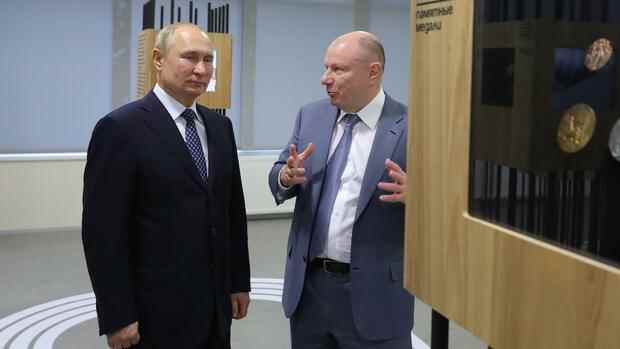Vladimir Potanin is the largest shareholder and President of Norilsk Nickel, the world’s largest supplier of palladium and high-grade nickel.
(Photo: Imago)
London Russian metal oligarch Vladimir Potanin warns that the situation in his country will be the same as it was before the Bolshevik revolution of 1917, given plans to confiscate foreign company assets in Russia shake and sideline the country for decades, Potanin wrote on Telegram.
Russian Prime Minister Mikhail Mishustin on Thursday proposed to President Vladimir Putin that the facilities of companies that had left Russia should be placed under external management. Potanin is the largest shareholder and president of Norilsk Nickel, the world’s largest supplier of palladium and high-grade nickel.
Potanin warned of the consequences of confiscating foreign assets by comparing the October Revolution and the nationalization that took place at the time. “It would set us back 100 years to 1917, and the consequences – a global lack of investor confidence in Russia – would be felt for many decades.”
Russia is already facing the worst crisis since the fall of the Soviet Union in 1991. The country is already feeling the effects of the drastic sanctions imposed by the West because of the Russian invasion of Ukraine on February 24th. Almost the entire financial and corporate system in Russia is affected.
Top jobs of the day
Find the best jobs now and
be notified by email.
“We should not try to slam the door, but rather strive to preserve Russia’s economic position in the markets that we have nurtured for so long,” Potanin wrote. “We see that the West’s own economy has suffered from the imposition of sanctions on Russia. So we have to be smarter and avoid a scenario where our sanctions hit us.”
Companies withdraw from Russia
Mishustin’s proposal is a reaction to the sanctions imposed by Western countries. The exact mechanism for a possible external administration of foreign companies is still unclear. The political and economic leadership in Russia is currently discussing how severely the response to the punitive measures by the West should be.
Putin has said Russia remains open to doing business with foreign investors and has no intention of closing itself off from those who still want to do business. However, a number of foreign companies have already declared their withdrawal.
In February, for example, BP announced that it would be giving up its stake in the Russian oil producer Rosneft. Companies from McDonald’s to Toyota to Ikea have gone out of business in Russia. Other Western companies such as Sony and Nintendo announced their withdrawal from the Russian market. The US investment bank Goldman Sachs wants to be the first Wall Street institute to conduct its business in Russia.
Potanin, 61, has always been a bit different from the other oligarchs who rose to become millionaires in the post-Soviet chaos of the 1990s. The privatization deals under President Boris Yeltsin gave Potanin and other oligarchs power over some of the former Soviet Union’s most important and best assets.
Their influence was undermined under Putin, who replaced Yeltsin as president in 2000. Now some of the largest oil production facilities in Russia came under state control.
More: How Russia’s war is throwing energy markets into chaos
